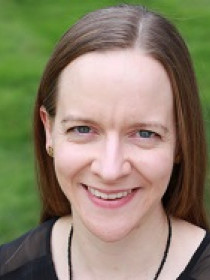
Elizabeth W. Patton
Connect with Elizabeth
About Elizabeth
Patton is a practicing obstetrician-gynecologist and health services researcher. She tries to understand how we can improve the health care system, particularly in the area of reproductive health. She is particularly interested in how individual and social values influence our health care decisions and policies, including the influence of religion and spirituality on reproductive health policies. She has collaborated with the federal government on reproductive health systems and policy at both the Center for Medicare and Medicaid Innovation, and the VA National Office of Reproductive Health. Patton continues to collaborate actively with the VA and is committed to working to provide women veterans with excellent care.
Contributions
In the News
Publications
Analyzes respondents to the Mott National Poll on Children's Health. Examines women's intended sources of care for reproductive health care in the context of key factors including insurance status, ethnicity, income and education. Focuses on the role of family planning clinics in the era of the Affordable Care Act.
Highlights the development of Health Services Research in Obstetrics and Gynecology, including the key role played by the Robert Wood Johnson Foundation and notable alumnae of the program.
Discusses results of a nationally representative survey of U.S. women's attitudes towards reproductive health care, and health care policy in light of the passage of the Affordable Care Act. Examines the impact of self-identified religious affiliation on attitudes towards reproductive health policies.
Analyzes a nationally representative survey examining women's preferences for reproductive health care, in light of anticipated changes with the passage and implementation of the Affordable Care Act.